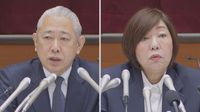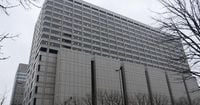In a significant ruling on May 9, 2025, the Tokyo District Court dismissed the lawsuit filed by KoKo Sawada, the former Vice President of Nihon University, against the President of the Board of Trustees, Makiko Hayashi. Sawada had claimed that he suffered power harassment due to Hayashi's demands for his resignation following a drug incident involving members of the university's American football team.
Judge Daisaku Uehari presided over the case and concluded that Hayashi's request for Sawada to resign was not an act of power harassment, but rather an attempt to resolve the issues surrounding the drug incident. This ruling came after a thorough examination of the circumstances surrounding the controversy that erupted in 2023.
The drug incident came to light in July 2023 when Sawada discovered plant fragments, later identified as marijuana, in a dormitory used by the football team. However, he did not report this finding to the Metropolitan Police Department until 12 days later, which sparked criticism regarding the delay in handling the situation. Critics pointed out that this delay could be seen as an attempt to cover up the incident rather than address it transparently.
Following the discovery, Sawada faced significant fallout. In August and September of 2023, he was asked not to attend major university meetings, and on September 4, Hayashi urged him to resign. Sawada eventually stepped down from his position at the end of December 2023, but he argued that the pressure to resign and the restrictions placed on his participation in meetings constituted power harassment, which he claimed led to a decline in his social reputation.
Despite Sawada's assertions, the court found that the actions taken by Hayashi and the university's executive members were not solely directed at him, but rather part of a broader consensus aimed at addressing the fallout from the drug incident. Judge Uehari noted that Hayashi's demand for Sawada's resignation was a means of resolving the issues related to the drug findings and did not constitute harassment.
In his comments following the ruling, Sawada expressed his disappointment with the court's decision. Through his attorney, he stated, "This is an unfair ruling with clear factual errors, and I will appeal to seek a just resolution in a higher court." His determination to fight the ruling reflects not only his personal stakes but also the broader implications for how universities handle allegations of misconduct and the responsibilities of their administrators.
The case has drawn attention not only for its legal implications but also for its potential impact on university governance and the treatment of staff in situations of crisis. As institutions navigate the complexities of managing allegations of drug use and misconduct, the balance between accountability and support for staff members remains a contentious issue.
In the wake of the ruling, questions linger about the university's internal processes and how they handle sensitive issues such as drug incidents. The fallout from the American football team's drug scandal continues to resonate within Nihon University, prompting discussions about the adequacy of existing policies and the need for reform in how such matters are addressed.
As the case progresses to a potential appeal, both Sawada and Hayashi are likely to remain in the public eye, with the university's reputation at stake. The outcome of this legal battle could set a significant precedent for how similar cases are handled in the future, influencing not only Nihon University but also other educational institutions grappling with similar challenges.
The ruling has also sparked conversations among legal experts and educators about the definitions of power harassment and the responsibilities of university officials in maintaining a safe and supportive environment for both students and staff. The complexities of such cases often reveal the intricate dynamics at play within academic institutions, where the lines between authority and harassment can become blurred.
In conclusion, the dismissal of KoKo Sawada's lawsuit against Makiko Hayashi highlights the ongoing challenges faced by universities in addressing allegations of misconduct while ensuring fair treatment of their staff. As the appeal process unfolds, the implications of this case may extend far beyond the individuals involved, potentially reshaping the landscape of university governance and accountability.







